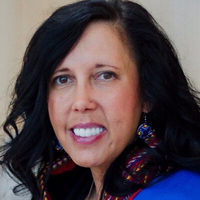
Canada’s history of colonization has laid the foundation for the implementation of racist health policy and the delivery of culturally unsafe health care, resulting in health disparities that are disproportionately experienced by Indigenous Peoples. Cultural groups that have experienced colonization also tend to encounter other levels of oppression, including epistemic and systemic racism. Epistemic racism is connected to the cultural erosion of Indigenous Peoples as westernized views and knowledge concerning health and well-being are prioritized, thus dominating and invalidating traditional Indigenous healing practices and customs. Systemic racism is exercised through Canada’s governance, where there is an unjust distribution of power that is built into law, policy and economic practice.
Since the establishment of the Indian Act in 1867, Canada’s Constitution has continued to support and maintain discriminatory and inequitable practices and policies that negatively impact the health of Indigenous Peoples. Epistemic and systemic racism render the Canadian health-care system inaccessible and culturally unsafe. The result is that Canada’s current health-care model is in and of itself a determinant of ill health for Indigenous Peoples.
The health and well-being of Indigenous Peoples continue to be affected by systemic racism in Canada, and we recommend specific policy changes to address these inequalities.
The lack of availability and accessibility of culturally safe health care combined with Canada’s long history of implementing racist and sexist policies oppress Indigenous Peoples and place them in inequitable spaces. COVID-19 has exposed many longstanding issues that are faced by Indigenous Peoples in Canada when accessing health-care services. This past May, for example, roadblocks set up in the far North disrupted access to treatment. Governments are now forced to acknowledge and address the systemic racism and sexism that is prominent in Canada’s health-care system.
The health-care field has provided many examples where cultural safety does not exist, and systemic racism keeps Indigenous Peoples from receiving equitable health-care services. One such example from 2015 is the forced sterilization of Indigenous women in Saskatoon who were coerced into undergoing tubal ligation while in labour and experiencing the physical and emotional stress of childbirth. While we know this practice of forced sterilization of Indigenous women has been ongoing across Canada since the early 1900s, this specific example was recently investigated and led to a class-action lawsuit.
Indigenous women routinely experience systemic racism, institutional racism, a lack of cultural safety and sexism, all of which have plagued Canada’s health-care industry since first contact. The death of Joyce Echaquan, an Atikamekw woman, and the release of her video of the abuse she experienced in a hospital in southwestern Quebec is a very recent example of a significant lack of cultural safety, systemic racism and sexism within our health-care industry. Another recent example, from June 2020, concerns a current investigation by British Columbia’s health minister into allegations of emergency room staff playing a game that involves guessing the blood alcohol levels of Indigenous patients, significantly affecting patient care and reinforcing racist attitudes in Canadian health care.
While Indigenous Peoples are resilient and continue to address and heal from historical traumas and systemic racism, it is time for Canada to make substantial changes to its health policies and legislations. Recommendations are centred on a collaborative approach that engages Indigenous Peoples and their communities in generating culturally safe and relevant health policies. Not only does this require adequate distinctions-based programming and reporting mechanisms, it involves the additional support of Indigenous-led research, recruitment of Indigenous health-care personnel and the integration of traditional healing practices in Canada’s health care model.
The respectful adoption of Indigenous health practices will give rise to culturally relevant, holistic health-care services, increasing their accessibility among Indigenous Peoples.
One approach to acknowledging systemic racism is the establishment of culturally safe programs and community-identified reporting mechanisms that will allow for formal monitoring and the opportunity to make adjustments to policies and programs. The viability of culturally safe programs is dependent on policy development, implementation, and evaluation that seeks to work with Indigenous communities to address the inequities Indigenous Peoples face in Canadian health care. Furthermore, the creation of an ombudsman (an advocate for fairness, accountability and positive change in the public sector) specific to Indigenous health should be established at the national, regional and local levels to ensure Indigenous Peoples feel safe to report inequities and experiences of mistreatment.
The implementation of traditional Indigenous health practices in Canada’s health-care system is necessary for capacity building in terms of learning, teaching and practicing cultural safety. For example, women-centred health-care services that offer LGBTQIA2S-specific programming emphasizes the importance of cultural safety when addressing sexism and systemic racism. The respectful adoption of Indigenous health practices will give rise to culturally relevant, holistic health-care services, increasing their accessibility among Indigenous Peoples. This requires engaging with health-care personnel and policy professionals who have both the experience and background working collaboratively and respectfully in Indigenous communities and with Indigenous Peoples.
For example, national committees that prioritize the inclusion of Indigenous professionals and health-care personnel will benefit from consulting and working with Indigenous Peoples to create an accessible and culturally safe health-care model. Furthermore, Indigenous-led health research will require increased funding as well as support from political platforms that are actively championing initiatives and promoting objectives to ensure equitable health care and opportunities for Indigenous Peoples. This is essential as it will result in a solid foundation for the creation of human and financial capacity within Indigenous communities.
These suggestions for Canadian health policy align with the recommendations generated by several commissions and organizations such as The Truth and Reconciliation Commission of Canada (TRC), the United Nations Declaration on the Rights of Indigenous Peoples (UNDRIP), and the Royal Commission on Aboriginal Peoples (RCAP), which highlight integral changes to policy that could improve the health outcomes of Indigenous Peoples.
Similar to the TRC, UNDRIP, and RCAP, our recommendations call for a collaborative and distinctions-based approach to the implementation of culturally safe programs that recognize the value and importance of traditional Indigenous health-care practices. In addition, the TRC has advocated for cultural safety training and an increase in Indigenous health professionals in Canada’s health-care system, further supporting our health policy recommendations.
The similarities that connect RCAP, UNDRIP, the TRC and our recommendations are rooted in Canada’s well-documented history of epistemic and systemic racism, which has disproportionately impacted the health of Indigenous Peoples. Many of the health disparities experienced by Indigenous Peoples correlate to social, economic and political factors, suggesting that the foundation of Canada’s systems and thus its health care are inherently discriminatory.
Our recommendations prioritize the collaboration and consultation with Indigenous Peoples concerning the development, implementation, and evaluation of culturally safe health policies and programs. Furthermore, the support and funding of Indigenous health professionals, Indigenous-led research, and traditional Indigenous health practices in Canada’s health-care system is crucial to the development of human and financial capacity within Indigenous communities. RCAP, UNDRIP, and the TRC published their recommendations in 1996, 2007, and 2015, respectively. Despite the solidarity illustrated by RCAP, UNDRIP, and the TRC, Canada’s health policies and legislation have failed to address systemic racism and have contributed to worsened health outcomes among Indigenous Peoples for almost a quarter of a century.
This article is based on a presentation made at the 25th annual Queen’s International Institute on Social Policy, which was held online August 25-September 21, 2020.
This article is part of the Tackling inequality as part of Canada’s post-pandemic recovery special feature.













